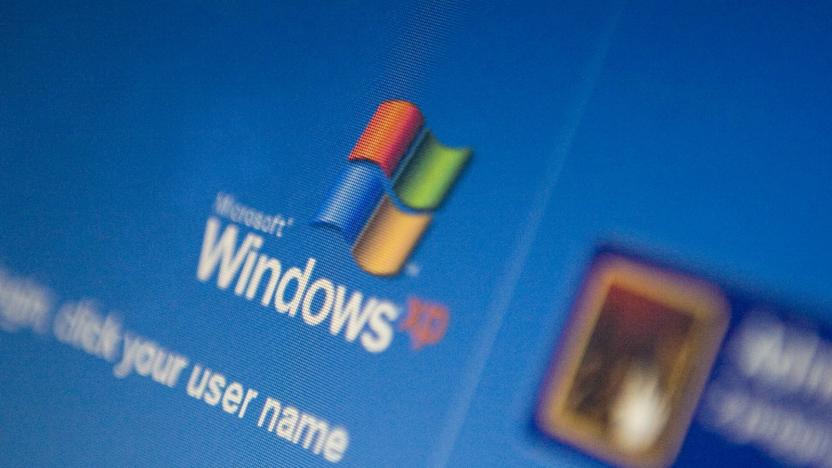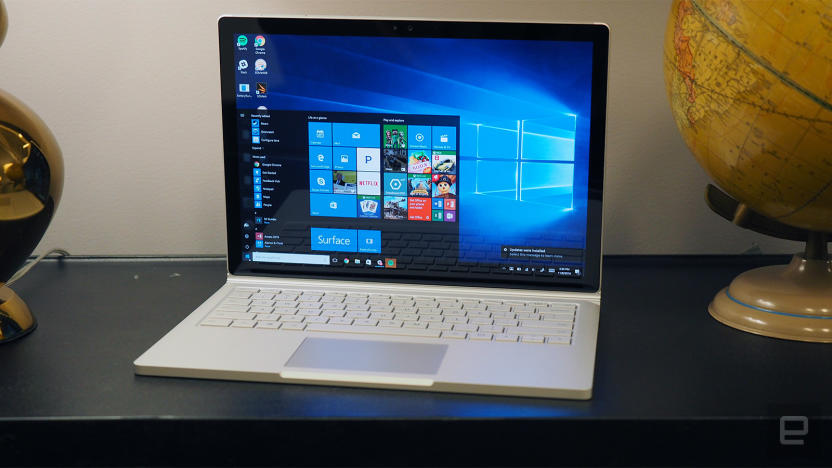MS17-010
Latest

Microsoft patches Windows XP to fight 'WannaCrypt' attacks (updated)
Microsoft officially ended its support for most Windows XP computers back in 2014, but today it's delivering one more public patch for the 16-year-old OS. As described in a post on its Windows Security blog, it's taking this "highly unusual" step after customers worldwide including England's National Health Service suffered a hit from "WannaCrypt" ransomware. Microsoft patched all of its currently supported systems to fix the flaw back in March, but now there's an update available for unsupported systems too, including Windows XP, Windows 8 and Windows Server 2003, which you can grab here (note: if that link isn't working then there are direct download links available in the Security blog post). Of course, for home users, if you're still running one of those old operating systems then yes, you should patch immediately -- and follow up with an upgrade to something current. If you're running a vulnerable system and can't install the patch for some reason, Microsoft has two pieces of advice: Disable SMBv1 with the steps documented at Microsoft Knowledge Base Article 2696547 and as recommended previously. Consider adding a rule on your router or firewall to block incoming SMB traffic on port 445 Update: Microsoft legal chief Brad Smith has written a blog post that both calls for more help from customers (read: update more often) and chastises intelligence agencies for hoarding security exploits. They don't understand the risk to the public if the exploits leak, Smith says -- it's as if someone stole a batch of Tomahawk missiles. We wouldn't count on the NSA or other agencies heeding the call, but Microsoft clearly wants to make its frustrations heard.

'WannaCry' ransomware attack spreads worldwide (update)
England's healthcare system came under a withering cyberattack Friday morning, with "at least 25" hospitals across the country falling prey to ransomware that locked doctors and employees out of critical systems and networks. It's now clear that this is not a (relatively) isolated attack but rather a single front in a massive digital assault. Update 2 (5/13): In response to infections like the ones that crippled parts of the NHS system, Microsoft is releasing a patch for unsupported systems including Windows XP, Windows 8 and Windows Server 2003.

NHS hospitals in England hit by a widespread cyberattack (updated)
Various NHS Trusts are currently battling with what appears to be a large-scale cyberattack affecting IT systems across the country. According to reports, hospitals and GP surgeries are falling victim to a widespread ransomware attack, causing them to shut down their computer networks. The East and North Hertfordshire NHS Trust was one of the first to acknowledge the problem and switch off its systems, warning locals that they will have trouble getting through on the phone and asking them not to visit accident and emergency unless absolutely necessary. Update: The attack has continued to spread and is now affecting systems around the world. Update 2 (5/13): In response to infections like the ones that crippled parts of the NHS system, Microsoft is releasing a patch for unsupported systems including Windows XP, Windows 8 and Windows Server 2003.

Microsoft says it already patched 'Shadow Brokers' NSA leaks
Yesterday, the mysterious "Shadow Brokers" posted some hacking tools for Windows that were allegedly stolen from the NSA. All of them were at least a few years old, but exploited flaws in several versions of the operating system to move across networks and infect systems. early Saturday morning, Microsoft has responded with a blog post, saying it has evaluated all of the exploits listed. Its response to the release is surprisingly simple: most of them have already been fixed.


